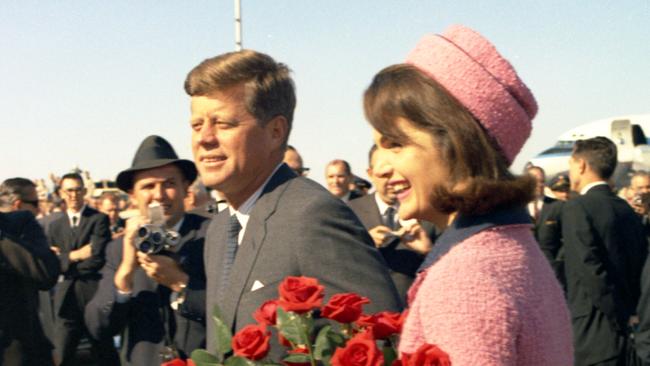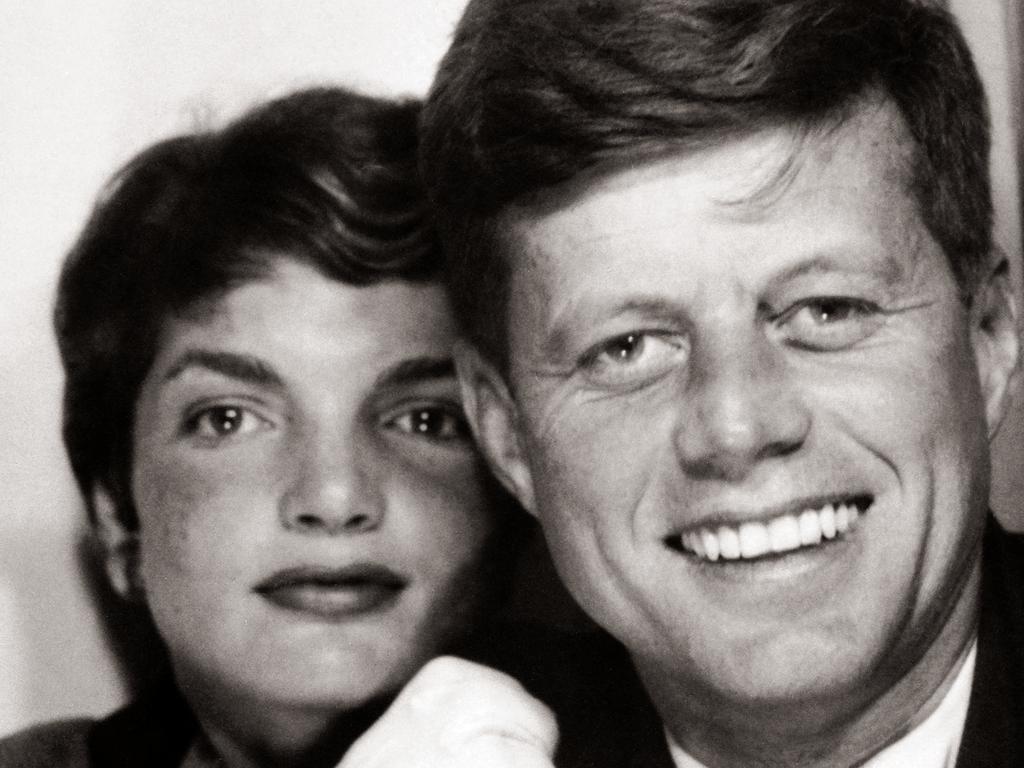60 years on, JFK’s murder shrouded in mystery
The full truth of the Kennedy assassination will never be known, but the last tranche of documents needs to be released.

Last month the US National Archives released another batch of official documents, about 13,100, related to the assassination but once again failed to comply with the spirit of a 1992 US law that requires all documents to be released by 2017.
About 3 per cent of the relevant documents, numbering in the hundreds, remain secret or heavily redacted. As president, Donald Trump delayed their release using a special clause in the law, and last month Joe Biden did so again, citing potential harm to national security, presumably under pressure from the US intelligence community.
After almost 60 years it’s farcical to think the documents weren’t ready for publication, so speculation about the murder erupted again. A few days later, JFK’s nephew Robert F. Kennedy Jr tweeted that he believed the CIA killed his uncle.
A certain minority of us are predisposed to see intrigue where there isn’t any, from the supposedly faked moon landing to the insane idea the 9/11 terrorist attacks on the US were an inside job. But humans are highly fallible creatures. The more people in on an alleged conspiracy, the more likely it is to unravel, especially as the years pass and incentives to keep the secret dwindle.
The Warren commission, which included CIA head Allen Dulles and US Supreme Court chief justice Earl Warren, concluded Kennedy was killed by a lone crazed communist sympathiser, Lee Harvey Oswald. It was emphatic only three shots were fired by this one man.
Surveys around that time showed almost 90 per cent of Americans didn’t believe that explanation. A special US House of Representatives committee that convened in 1976 to re-examine the evidence left the door open for a conspiracy of some sort.
Even in 2017, more than 60 per cent of Americans believed some sliver of the US intelligence or military services had acted secretly to execute Kennedy, or perhaps the mafia was involved, both groups having reasons to hate the 46-year-old reforming president, who was bound to be re-elected.
Quite aside from the fact Oswald himself was murdered by Dallas nightclub owner Jack Ruby days after Oswald’s arrest, preventing any trial, the number of bizarre facts and unanswered questions about JFK’s assassination make it hard to dismiss the idea of a conspiracy outright.
Many witnesses who were adamant they heard shots coming from a grassy knoll nearby, suggesting more than one shooter, were ignored in the final Warren report. Some ballistics experts say firing three shots, two of which hit the president, in under six seconds would be physically almost impossible, even for a former marine such as Oswald.
Even though French president Charles de Gaulle had survived an assassination attempt in his presidential Citroen in August 1962, US security was woefully inadequate the day the US president’s motorcade passed through Dallas.
And as Oliver Stone made clear in his 1991 film, JFK, and his subsequent 2021 documentary, JFK Revisited: Through the Looking Glass, the idea a single bullet could have caused the numerous injuries sustained by the passengers in the car seems ludicrous. The one bullet was meant to have travelled through the president, turned mid-air, then travelled through the seat in front of him, hitting the Texas governor before lodging the latter’s thigh.
Moreover, the supposed bullet that did the damage, uncovered later near Kennedy’s stretcher, was in perfect condition, as if it hadn’t even been used.
The presidential car was washed down soon after the murder rather than preserved as a crime scene. Oswald, who after deserting the marines for the Soviet Union was allowed to return to the US and settle in Texas with his Russian wife, maintained his innocence until the end, claiming he was a patsy.
For me, the strangest event was the fact John Quigley, the FBI agent who arrested Oswald, destroyed the notes he took during his lengthy interview with Oswald. Dr Malcolm Perry who treated the president immediately after he was shot, subsequently changed his conclusion about the direction in which the bullet entered Kennedy’s head and never spoke about it again.
Finally, the autopsy report on the dead president, another source of controversy, remains incomplete after one of the doctors threw his notes in a fire, a bizarre act given the clues it could have revealed about JFK’s injuries.
The idea a supposed communist, Oswald, would kill Kennedy, who publicly had sought a less confrontational stance against the Soviet Union and Cuba, doesn’t make a great deal of sense either. Parts of the US intelligence services, especially the CIA, had a lot to be angry with JFK about.
Kennedy had flagged the organisation’s effective dismantlement, planning to slash its budget in the wake of the humiliation of the Bay of Pigs invasion of Cuba, and he wanted to pull the US out of Vietnam, decisions that were promptly reversed by his successor, Lyndon Johnson.
Republican president Gerald Ford, who as a congressman had been a member of the Warren commission, later told French president Valery Giscard d’Estaing in 1976 he wasn’t personally satisfied with the single-bullet explanation and left open the possibility of a conspiracy in his memoir.
None of these events proves anything, but they are awfully odd taken together, and these are only a fraction of the total number of questions various historians and journalists have raised through the years. The full truth of the Kennedy assassination will never be known; everyone involved is dead. The Biden White House has promised a complete release of all the remaining documents by the end of next year. They’ve promised that before.








Conspiracies have swirled around high-profile, unexpected deaths since Emperor Nero’s suicide in AD 68. But none has captured the public imagination like US president John F. Kennedy’s assassination on November 22, 1963.